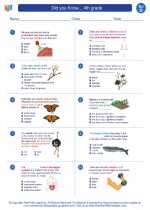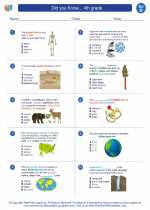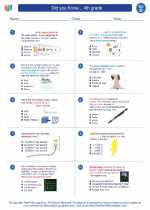Photon: Explanation and Study Guide
What is a Photon?
A photon is a fundamental particle of light. It is the smallest unit of light and has properties of both a particle and a wave.
Properties of Photons
- Energy: Photons carry energy and can transfer that energy when they interact with matter.
- Mass: Photons are massless particles.
- Speed: Photons travel at the speed of light in a vacuum, which is approximately 299,792 kilometers per second.
- Wave-Particle Duality: Photons exhibit both wave-like and particle-like behavior, as described by the wave-particle duality principle in quantum mechanics.
How are Photons Produced?
Photons can be produced in various ways, including:
- Emission from Atoms: When an atom undergoes a transition from a higher energy state to a lower energy state, it emits a photon.
- Electromagnetic Radiation: Photons are produced as electromagnetic radiation from sources such as the sun, light bulbs, and electronic devices.
- Particle Interactions: High-energy particle interactions can produce photons as a result of particle decay or annihilation processes.
Interactions of Photons
Photons interact with matter in various ways, including:
- Absorption: When a photon is absorbed by an atom or molecule, it can transfer its energy to the absorbing material, leading to excitation or other effects.
- Reflection and Refraction: Photons can be reflected or refracted when they encounter a surface or a boundary between different materials.
- Emission: Atoms and molecules can emit photons when transitioning between energy levels, contributing to the emission of light.
Applications of Photons
Photons have numerous applications in various fields, including:
- Optics: Photons are essential in optical technologies, such as lasers, fiber optics, and imaging systems.
- Communication: Photon-based technologies are used in telecommunications, including fiber optic communication networks.
- Medical Imaging: Photon-based imaging techniques, such as X-rays and MRI, are vital in medical diagnostics.
- Renewable Energy: Photons play a crucial role in solar energy technologies, where they are converted into electrical energy through photovoltaic cells.
Study Guide Questions
- What are the properties of photons?
- How are photons produced?
- Describe the interactions of photons with matter.
- Provide examples of applications of photons in everyday life.
[Photon] Related Worksheets and Study Guides:
.◂Science Worksheets and Study Guides Fourth Grade. Did you Know... 4th grade
Study Guide Did you Know... 4th grade
Did you Know... 4th grade  Worksheet/Answer key
Worksheet/Answer key Did you Know... 4th grade
Did you Know... 4th grade  Worksheet/Answer key
Worksheet/Answer key Did you Know... 4th grade
Did you Know... 4th grade  Worksheet/Answer key
Worksheet/Answer key Did you Know... 4th grade
Did you Know... 4th grade 

 Worksheet/Answer key
Worksheet/Answer key
 Worksheet/Answer key
Worksheet/Answer key
 Worksheet/Answer key
Worksheet/Answer key

The resources above cover the following skills:
Core Ideas for Knowing Science
Life Science
Organisms are organized on a cellular basis and have a finite life span.